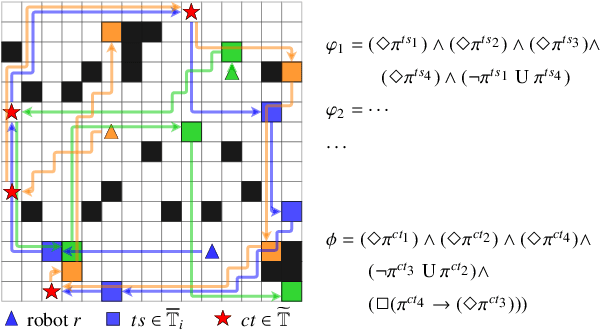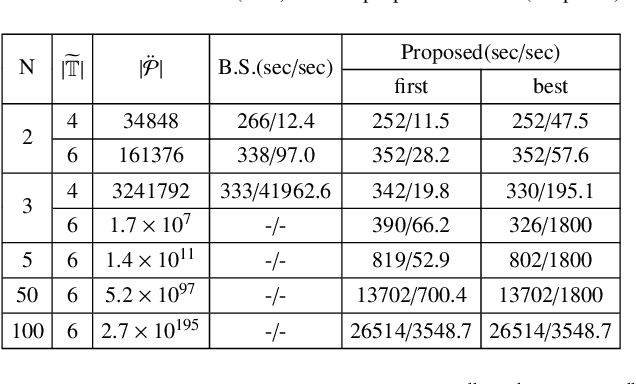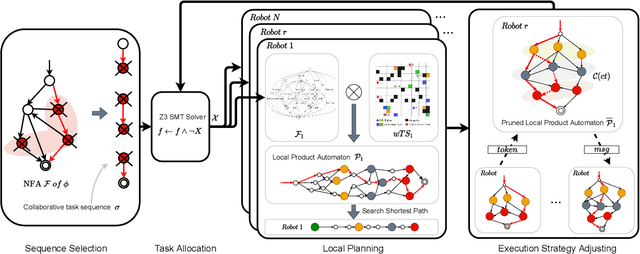Hierarchical Multi-robot Strategies Synthesis and Optimization under Individual and Collaborative Temporal Logic Specifications
Paper and Code
Oct 21, 2021



This paper presents a hierarchical framework to solve the multi-robot temporal task planning problem. We assume that each robot has its individual task specification and the robots have to jointly satisfy a global collaborative task specification, both described in linear temporal logic. Specifically, a central server firstly extracts and decomposes a collaborative task sequence from the automaton corresponding to the collaborative task specification, and allocates the subtasks in the sequence to robots. The robots can then synthesize their initial execution strategies based on locally constructed product automatons, combining the assigned collaborative tasks and their individual task specifications. Furthermore, we propose a distributed execution strategy adjusting mechanism to iteratively improve the time efficiency, by reducing wait time in collaborations caused by potential synchronization constraints. We prove the completeness of the proposed framework under assumptions, and analyze its time complexity and optimality. Extensive simulation results verify the scalability and optimization efficiency of the proposed method.
 Add to Chrome
Add to Chrome Add to Firefox
Add to Firefox Add to Edge
Add to Edge